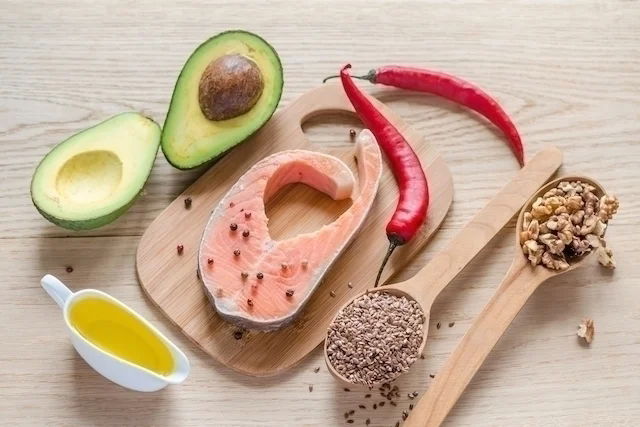To lower cholesterol, many patients will need to undergo several lifestyle changes, like ensuring regular physical activity, increasing fiber intake, and drinking tea regularly. Diet-wise, patients should also prioritize fruits, vegetables and fresh fish, and opt for grilling or steaming with natural sauces.
Many people with high cholesterol levels tend to have a diet that is rich in saturated and trans fat, and will usually consume more fatty cuts of meat, whole dairy, pizza, cake and fried food. High cholesterol is also associated with a sedentary lifestyle.
These lifestyle changes are necessary to reduce the risk for cardiac disease, as high cholesterol levels are associated with heart conditions like atherosclerosis, stroke and myocardial infarct.

Tips for lowering cholesterol
Levels of cholesterol, particularly LDL, can be lowered by:
1. Exercising regularly
Aerobic exercise like swimming, running, walking, water aerobics and biking, are the best way to lower LDL cholesterol levels. You should dedicate at least 30 minutes per day, at least 3 times per week, to engaging in moderate to high-intensity exercise.
Physical activity also helps to increase HDL cholesterol, which is associated with a lowered risk for developing cardiac disease.
2. Eatings foods rich in phytosterols and phytostanols
Eating foods rich in phytosterols and phytostanols helps to reduce "bad" cholesterol, or LDL cholesterol. These foods decrease the risk for cardiac disease, like atherosclerosis and myocardial infarct. Foods that are rich in these compounds include vegetable.based oils, nuts, and legumes (particularly soy beans).
3. Increasing fiber intake
A diet rich in soluble fiber, like oats, barley, and legumes, can help to increase the elimination of cholesterol through the stool. Fiber is fermented in the intestines, which produces a short chain of fatty acids. Cholesterol is then eliminated with the help of biliary acids, and further formation of cholesterol in the liver is inhibited.
You are advised to eat at least 5 portions of fruits and vegetables per day. Some easy, high-fiber foods include apples, pears, bananas, green beans, and spinach. Learn more about high-fiber foods that you can incorporate into your daily diet.
4. Consuming probiotics
Probiotics are microorganisms that live naturally in the intestines. They come from food sources, like yogurts or supplements, and can offer many health benefits which include boosting immunity and intestinal flow.
Probiotics can lead to a lower total cholesterol level if consumed on a daily basis, which can reduce the risk for cardiac disease.
5. Drinking green tea every day
Green tea helps to regulate cholesterol levels, especially LDL cholesterol, due to its potent antioxidant effect.
You should aim for 2 to 4 cups per day to achieve this affect, although people with high blood pressure should drink a maximum of 3 cups per day. Read more about the other health benefits that green tea can offer.
6. Consuming healthy fats
Foods that are rich in omega-3, particularly fatty fish (like mackerel, herring, salmon, tuna, and trout), help to lower triglyceride levels. Although these do not lower bad cholesterol levels (LDL), these foods are associated with improved good cholesterol levels (HDL). HDL is an important protective factor for the cardiovascular system. You should aim to consume fish at least twice per week.
Other foods that contain omega-3 include flaxseed oil, cereal germ, and nuts, although there are also omega-3 supplements available for purchase.
You should avoid consuming saturated fats, which can be fount in fatty cuts of meat, butter, sausages, and whole milks. Trans fats should also be avoided, and these can be found in fried food and processed food, like salty snacks, margarine, cakes, tarts and sweets.
7. Eating more garlic
Garlic helps to lower LDL cholesterol and triglycerides by inhibiting oxidation. Garlic can help to reduce the risk for atherosclerosis and manage cholesterol levels. Patients are advised to eat one clove of garlic per day.
8. Drinking eggplant juice
Eggplant juice is a great home remedy for lowering high cholesterol because it contains antioxidant substances, like nasunin and anthocyanins.
To prepare eggplant juice, you should use the full eggplant, including the peel, as this is where antioxidant substances are most concentrated. Mix half an eggplant with the juice of 2 oranges, and drink this every day on an empty stomach.






























